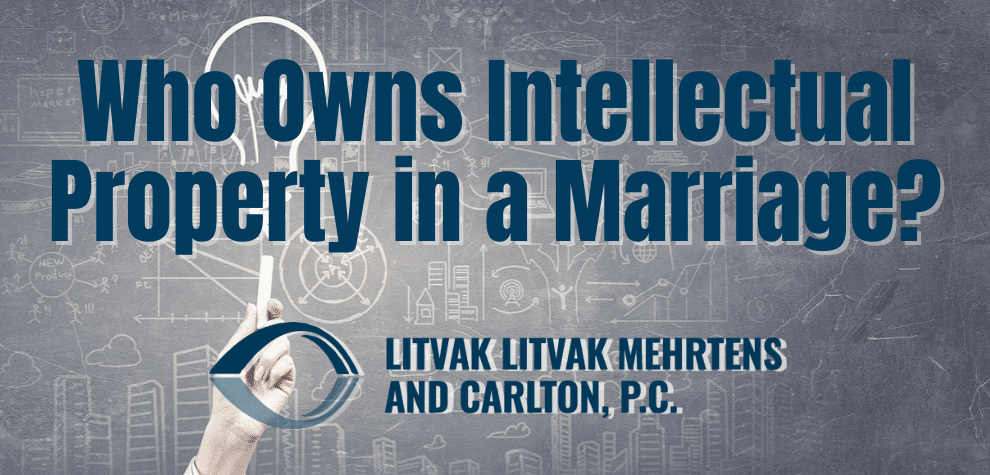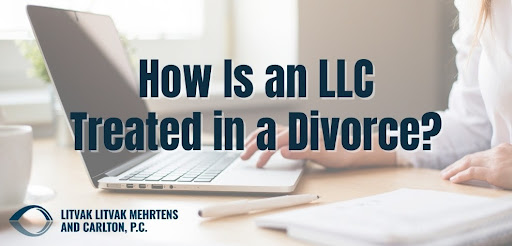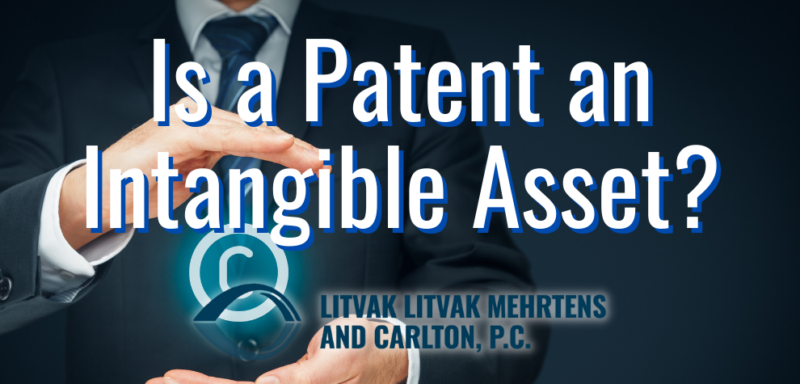Certain types of property are easier to split than others during a divorce. For example, household items like kitchen equipment or power tools might belong to one spouse or the other. Therefore, they agree to split those items fairly. However, when intangible property comes into play, the whole process slows down due to the added complexity. Who owns intellectual property in a marriage? Who gets it in the event of a divorce? It depends on many factors, which a qualified Colorado divorce attorney can help you understand.
At Litvak Litvak Mehrtens and Carlton, we handle all manner of divorce cases in Colorado. Property division in a Colorado divorce can be a tricky topic, but our attorneys have extensive experience through handling a large number of high asset divorce cases. We also excel in liquidating assets before divorce. For more information on how we can help in your case, please call 303-951-4506 today, or fill out our online intake form.
Property Division in Colorado
In a divorce, Colorado is not a community property state. Colorado is actually an equitable distribution state. If couples cannot come to an agreement on their own, the court will split property in a way that they judge fair to both parties, but not necessarily equal. Colorado is also a dual-property state, which implies that property can be either marital or nonmarital in nature.
There are two categories of property to consider when contemplating property distribution during a legal separation or dissolution of marriage: marital property and separate (nonmarital) property. In general, marital property refers to property obtained after the marriage by either spouse. The Court then determines how to split the marital property once it decides what is marital property. However, each spouse retains their individual property.
In Colorado, marital property is split regardless of marital fault or misbehavior. The Court divides property in an equitable or fair manner, which does not always mean that the property is split evenly. The Court examines “all relevant criteria” while deciding how to split marital property. We list the relevant factors below.
- Each spouse’s contribution to the acquisition of marital property, including a spouse’s contribution as a homeowner
- The value of the property given to each spouse
- The economic conditions of each spouse at the time the property division takes effect, including whether it is desirable to award the family home or the right to live in it for a fair amount of time to the spouse with whom any children dwell the bulk of the time
- During the marriage, any growth or losses in the value of the spouse’s separate property, as well as the depletion of the separate property for marital reasons
Marital Property
The property that the court deems is part of the marital estate and jointly owned by both spouses is marital property. The courts also consider how much each spouse contributed to the acquisition of each item of marital property. Even if one spouse does not work, they will have contributed to the marital estate by caring for the home and raising the children. The court will also look at whether the value of the separate property has changed over the course of the marriage, since it may become part of the marital estate.
Nonmarital (Separate) Property
If the court decides that the property is distinct from the marital estate and owned only by one spouse, it will not be included in the appraisal for marital asset distribution in a divorce. Separate property might include assets provided to one spouse before marriage or inheritances handed to one spouse expressly during the marriage.
What Is Intellectual Property?
In general, intellectual property refers to any creation of the human mind that is protected by the law. Intellectual property ownership establishes a limited monopoly in the protected property by definition. Patents, copyright, trademarks, and trade secrets are the four conventional types of intellectual property.
Types of Intellectual Property
Understanding the different types of intellectual property rights is extremely important, especially in the event of a divorce. Below, we outline the four basic types of property rights.
Copyrights
Writing, images, music, art, and other types of intellectual works are all protected by copyrights. This implies that if you authored anything or developed something that you don’t want other people to use without your permission, you have the right to copyright it. People who wish to borrow, reuse, or repurpose your work must now contact you first, credit you as the creator, and use it for the purposes you accept.
Patents
Patents are essentially a grant of a property right to an inventor from the government. These grants usually last around 20 years from the time of filing with the government. An extensive list of items receive patents, as the specifics are open to interpretation. Broadly speaking, patents cover those who invent or discover new or useful processes, manufactures, machines, and so much more. It also covers improvements of the aforementioned concepts.
Trademarks
A trademark is a term, phrase, symbol, or design that identifies and differentiates the source of one party’s goods from those of another, or a combination of these elements. For example, your company name, logo, or slogan may be trademarked. Your company’s or items’ trademark serves as a brand identification. Trademarks can be applied to images, phrases, and colors.
Trade Secrets
A trade secret is, in general, any piece of sensitive company knowledge that offers a corporation a competitive advantage. As an example, a food or beverage company might have a secret formula that makes their products so appealing. That formula is their trade secret since it gives them a leg up in the food and beverage industry. If someone created a company and used their exact recipe to create an identical product, that would be infringing on their trade secret. Beyond secret formulas or ingredients, trade secrets also include sales methods, advertising campaigns, consumer information, strategies, vendor lists, and much more.
Who Owns Intellectual Property in a Marriage?
Colorado is a marital property state, not a community property state. That is, upon dissolution of marriage, legal separation, or annulment, the assets and obligations accumulated during the marriage (i.e. the marital estate) should be distributed fairly between the spouses.
All property acquired during the marriage is not assumed to be marital property by the state. As a result, Colorado distributes marital assets and obligations in a fair, but not necessarily equal, manner. You must first establish the property’s worth before dividing it. This might be done through a formal evaluation, such as for the family home, or through another method of value that has been agreed upon.
Figuring out who owns intellectual property during divorce proceedings is important. Property division in Colorado, as in many other states, is a complicated process. That’s why it’s important to get with your trusted Colorado divorce attorney. We’ll help you determine the best course of action for your case.
Dividing Copyright
Courts usually divide copyrights between the two spouses when they divorce. The state of the parties’ marriage when the work in question was fixed in a tangible medium of expression determines whether copyrights are community or separate in Colorado. However, proving the value of a copyrighted work with evidence can be difficult.
Dividing Trademark
We usually associate trademarks with a company that manufactures things or provides services. When a firm first utilized a trademark to identify the source of its goods, it determines whether the trademark is communal or separate property. In practice, the community or distinct character of a trademark usually corresponds to the character of the company that utilizes it. Trademark rights may be classified as part of a company’s goodwill, which can be a divided asset in a divorce.
Dividing Patents
Patents are community property if the spouse receives them from the USPTO during the marriage. Patent applications that are pending clearance by the USPTO are also subject to community property restrictions, according to some courts. As a result, courts have the power to require the parties to divide any patent profits. They also divide damages resulting from patent infringement lawsuits equally.
How to Protect Intellectual Property in a Divorce
An individual can safeguard their intellectual property by establishing a prenuptial agreement or postnuptial agreement. It allows the inventor to claim their invention as their own. It also states that if they divorce, they would maintain ownership of the copyright or patent. This includes any potential money it may earn.
If you didn’t make a marriage agreement, you might try to safeguard your sole ownership via mediation. Rather than letting the Colorado courts decide the results of your asset split, you and your partner might work with our mediators to reach an agreement that protects you and your intellectual property.
See Also: Divorce and LLC Ownership
Contact a Colorado Divorce Lawyer Today
The best way to determine who owns intellectual property in a divorce is to consult with a lawyer. You’ll want one who has handled similar cases in the past. At Litvak Litvak Mehrtens and Carlton, our years of experience and in-depth understanding of property division in Colorado make us one of the best firms to handle your case. If you need a qualified attorney in Colorado to handle your divorce case and property division, contact our office today at 303-951-4506. You can also fill out our online intake form.






